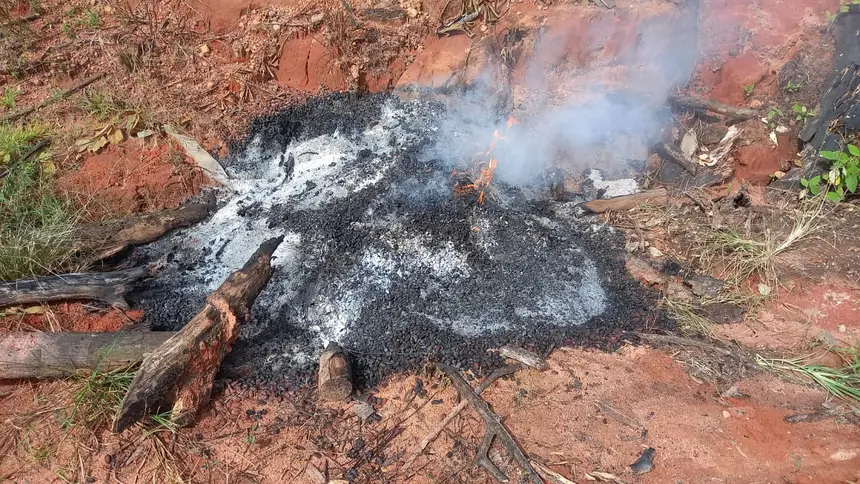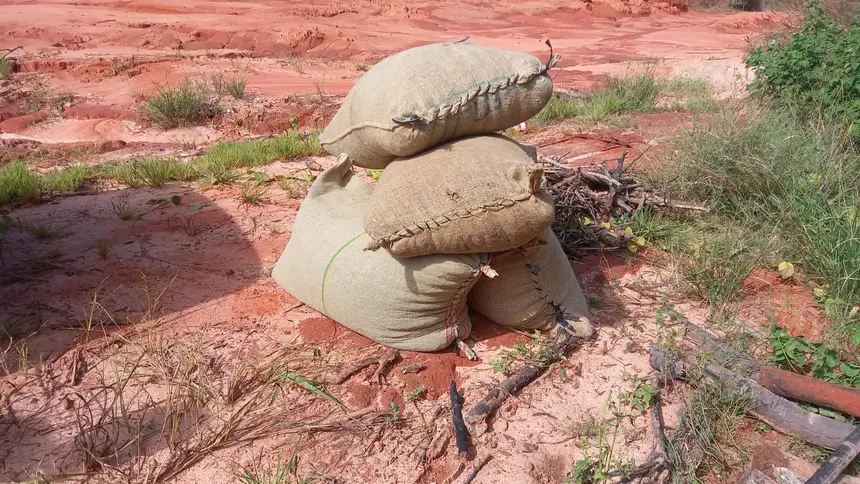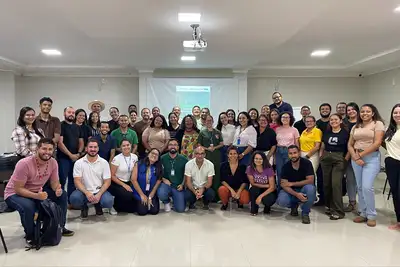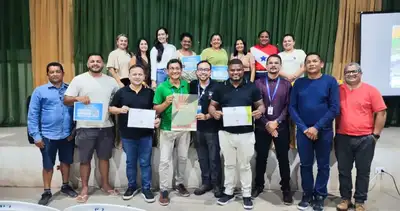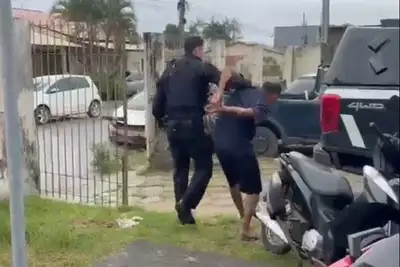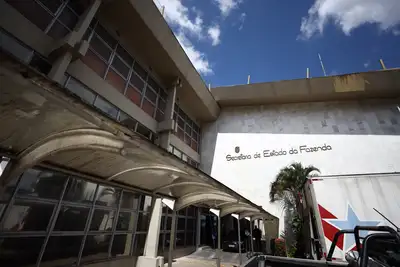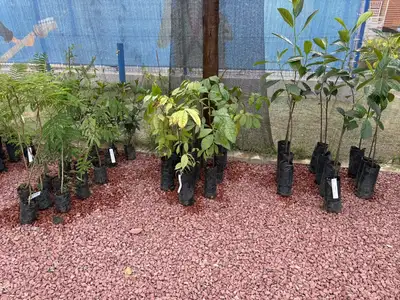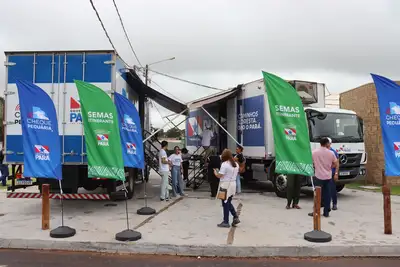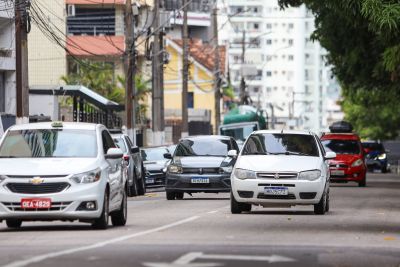Cocoa beans without transit documentation are incinerated in Juruti
The 200 kg load was found on a boat, in irregular sacks, and originated from the city of Parintins, in Amazonas
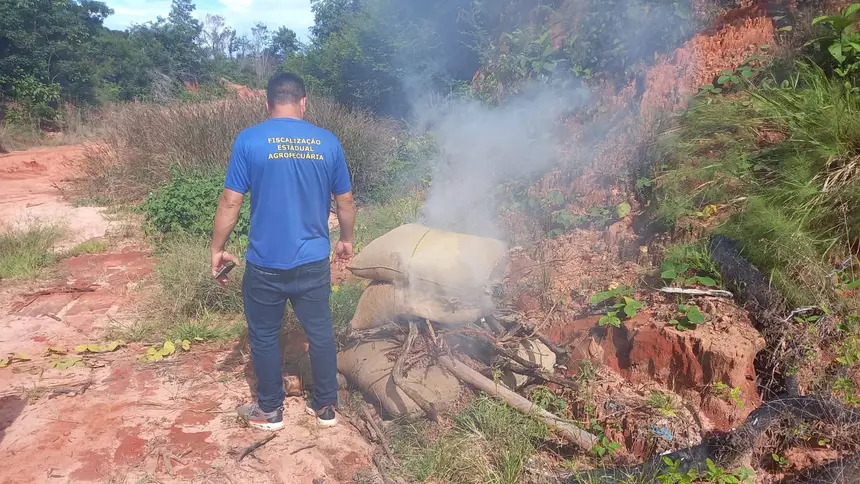
As part of the actions to protect the territory of Pará from the cocoa and cupuaçu tree disease, moniliasis, the Agricultural Defense Agency of the State of Pará (Adepará) destroyed 200 kg of cocoa beans from Parintins, Amazonas. The load was found on a vessel last Sunday at the Juruti Hydroviary Terminal in Lower Amazonas.
At the time of the seizure of the beans, the person responsible for the vessel did not present the transit documentation, contrary to state decree No. 3,954/2024, which prohibits the entry, transit, and trade of cocoa and cupuaçu plant materials and other host species of the moniliasis fungus from states with occurrences of the pest.
“Our production is safeguarded from the possibility of any type of pest and disease entering our territory. This action is the result of the Juruti inspection post, set up specifically to combat and control moniliasis in the State,” said the general director of Adepará, Jamir Macedo.
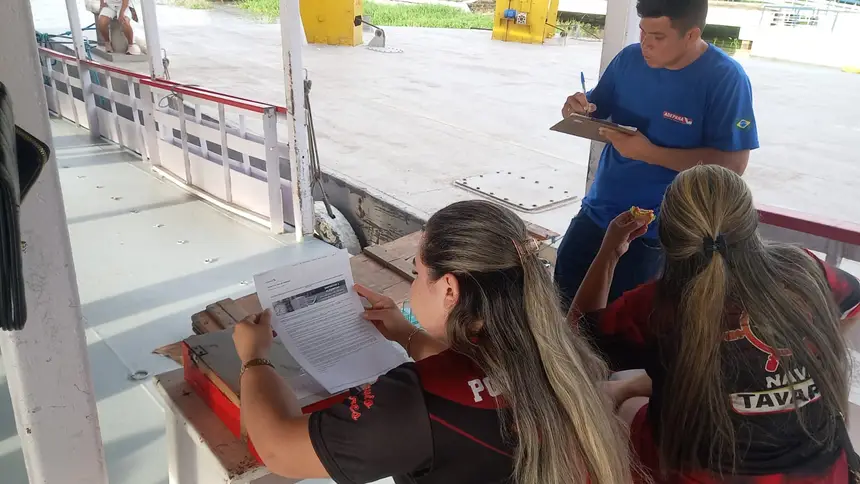
“All fermented and dried cocoa beans, to enter the State of Pará, coming from areas where the pest occurs, must be accompanied by a product classification certificate type 1 and type 2 and with an invoice for the sacks,” explained the agronomist from the Local Agricultural Sanity Unit (Ulsa) of Juruti, Mário Ferreira.
To prevent the entry of the pest, Adepará operates on three fronts: active surveillance on properties registered by the cocoa program, phytosanitary education actions, and inspection of the agricultural transit of plant origin products at fixed and mobile posts.
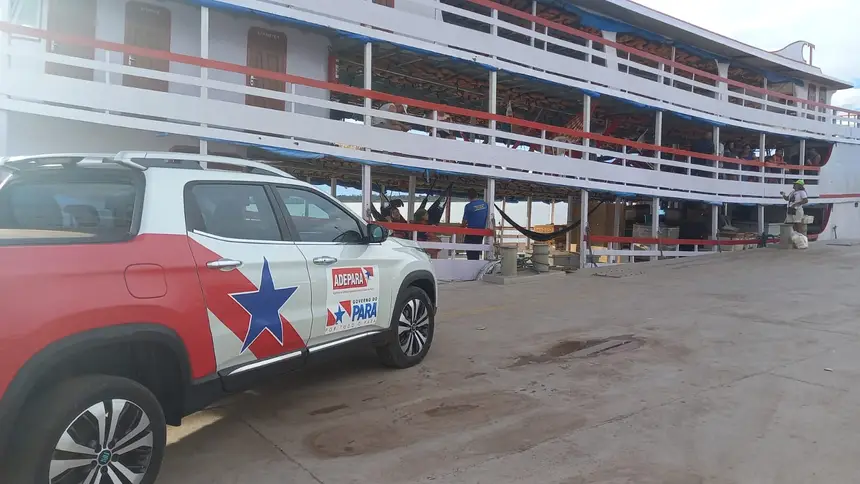
“According to the owner of the load, who lives in Santarém, the beans were purchased from a producer in the city of Faro, being shipped from Parintins, Amazonas, considered a risk zone. However, there was no documentation proving the origin,” said agricultural fiscal agent Jakson Queiroz.
After a phytosanitary inspection, the 200 kg of beans were incinerated due to their high risk to the cocoa production chain in Pará. All phytosanitary inspection actions in the municipality were coordinated by the manager of Ulsa, Perla Guedes, agronomist Mário Ferreira, and state agricultural fiscal agent Jakson Queiroz.
Pest - Moniliasis is caused by a resistant fungus that attacks only the fruits of cocoa and cupuaçu. The main characteristic of the disease is the formation of a white powder on the fruits, which are the spores, easily disseminated by the wind and by humans when transporting contaminated fruits. Other symptoms include swelling or deformation, brown spots, rotting of the pulp, seeds, and mummification of the fruits.
Phytosanitary education - To raise awareness among the people of Pará, especially those living in the Lower Amazonas regions, a risk area for the entry of the pest, Adepará held two editions of the Moniliasis Caravan in Pará. In 2023, the sanitary education actions took place in Tomé-Açu, and in 2024, Juruti received training from the Adepará technical team, which after days of immersion in innovative education methodologies, went to the rural communities of the municipality, informing about the disease and advising residents to avoid transporting cocoa and cupuaçu fruits.



